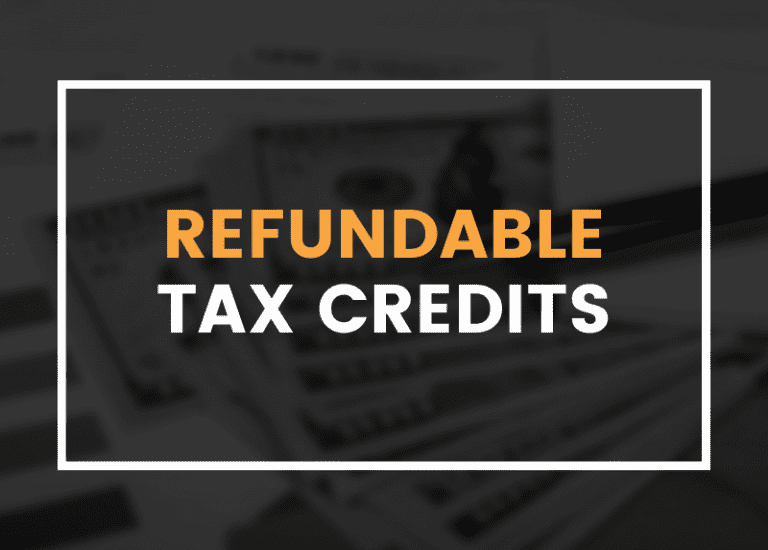Refundable Tax Credits
- February 15, 2022
- Posted by: CKH Group
- Category: Tax tips

What is a Refundable Tax Credit?
A refundable tax credit is a tax benefit that can reduce your tax liability below zero, resulting in a refund from the federal government. Unlike nonrefundable tax credits, which can only reduce your tax liability to zero, refundable tax credits can generate a negative tax liability. This means that if the credit amount exceeds your tax bill, the difference is refunded to you. For example, if you owe $1,000 in taxes and qualify for a $1,200 refundable tax credit, you would receive a $200 refund from the IRS.
How Do Refundable Tax Credits Work?
Refundable tax credits work by providing a financial benefit that can exceed the amount of taxes you owe. It’s essential to understand the order in which you apply your credits and deductions. Generally, taxpayers apply nonrefundable credits and tax deductions to their tax bill first. These credits and deductions can lower your tax liability to zero. However, if you have any refundable credits remaining after your tax liability is reduced to zero, you can still claim those credits and receive the amount as a refund.
For instance, suppose your tax liability is zero after applying your nonrefundable credits and deductions, and you qualify for a $1,000 refundable credit. In that case, you would receive the entire $1,000 as a refund. This system is designed to ensure that taxpayers can benefit from refundable credits even if they owe no taxes.
Important Things to Note About Refundable Credits:
Refundable tax credits come with specific qualifications that taxpayers must meet to claim them. These qualifications vary for each credit and are established by the IRS to ensure that the credits are targeted to those who need them the most. Common qualifications include:
- Income Level: Many refundable credits are designed to benefit lower to moderate-income taxpayers. Therefore, they often have income thresholds that determine eligibility. Taxpayers with incomes below a certain level may qualify for the full credit, while those with higher incomes may qualify for a reduced amount or not at all.
- Family Size: Some credits consider the size of your family. For example, the Earned Income Tax Credit (EITC) provides higher benefits for taxpayers with more dependents.
- Earned Income Requirement: Many refundable credits, such as the EITC, require that the taxpayer has earned income from employment or self-employment. This requirement ensures that the benefit goes to individuals and families who are working.
It’s important to review the qualifications for each credit you are considering. Each credit is designed with specific policy goals in mind, and understanding these qualifications can help you determine if you are eligible.
The availability of refundable tax credits can change from year to year. This is because many tax credits are temporary and require renewal or extension by Congress. For example, during the COVID-19 pandemic, the American Rescue Plan Act of 2021 temporarily expanded the Child Tax Credit, making it fully refundable and increasing the credit amount for one year. Such changes are often enacted to provide additional support during times of economic hardship.
Because the tax code can change frequently, it’s important to stay informed about current tax credits. Taxpayers should check the latest IRS guidelines or consult with a tax professional to ensure they are aware of any changes that could affect their eligibility for refundable credits.
Refundable credits can play a valuable role in your tax return, so if you have any questions or concerns about refundable tax credits, CKH Group is here to help you! You can reach out here to book a free consultation or you can contact us at 770-495-9077 or send us an email at [email protected].
The above article only intends to provide general financial information and is based on open-source facts, it is not designed to provide specific advice or recommendations for any individual. It does not give personalized tax, financial, or other business and professional advice. Before taking any form of action, you should consult a financial professional who understands your particular situation. CKH Group will not be held liable for any harm/errors/claims arising from the articles. Whilst every effort has been taken to ensure the accuracy of the contents, we will not be held accountable for any changes that are beyond our control.
